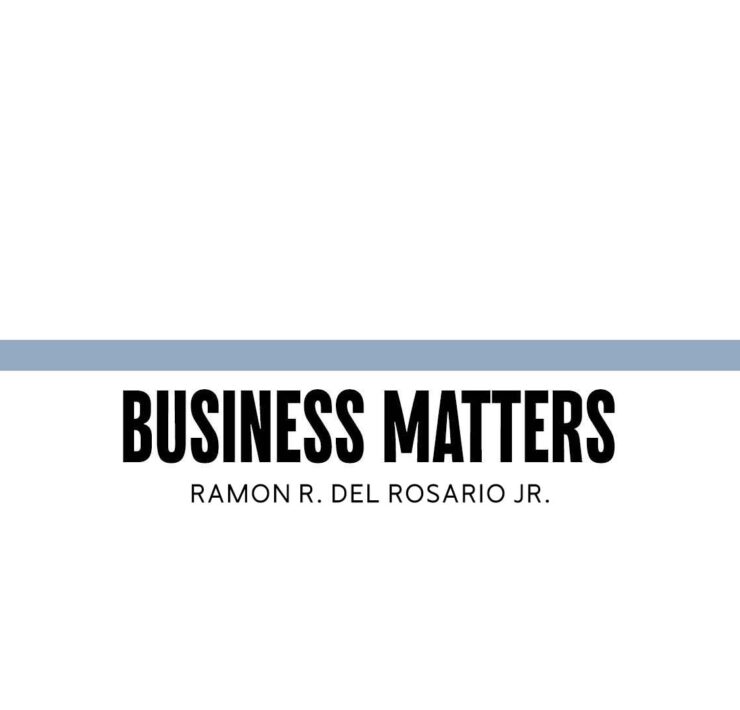Building an ecosystem to fight poverty

Tonight, Junior Chamber International (JCI) Manila, the De La Salle University Ramon V. del Rosario College of Business and its Phinma-DLSU Center for Business and Society, the Asian Institute of Management’s Ramon V. del Rosario Center for Corporate Responsibility, and the Phinma Group will once again honor a business leader in nation-building and five young entrepreneurs igniting sparks of change thru sustainable business enterprises that make lives better and achieve measurable social impact for communities. It is the 12th year for the nation-building awards and the third for the young entrepreneurs’ recognition branded as the Siklab Awards.
I begin with announcing tonight’s awards event with some weariness of spirit because the last State of the Nation Address or Sona of President Marcos hardly hinted at a low-hanging fruit for poverty alleviation: developing an “ecosystem” for entrepreneurship and social enterprise. This despite the fact that a huge part of the address was all about the need to pull our people out of poverty.
The address only had a couple of references to initiatives that may be part of the needed ecosystem. The first was when he mentioned that “more and more systems are now digital and cashless, assimilating individuals, MSMEs, and even agricultural workers” and the second was when he mentioned “experiential tourism” and the “one town, one product concept.”
For sure, the ecosystem we need must cast a much wider net that will include more programs, community-based initiatives, better systems, more collaboration and not just coordination, education, advocacy, and communications. In short, we need a comprehensive plan of action that more existing and aspiring entrepreneurs can buy into and become a part of.
Undoubtedly, this is one of those things that is easier said than done. A way forward may be to bring together business groups, schools of business and entrepreneurship, microfinance institutions, and successful young entrepreneurs to craft possibly a 10-point agenda to build the needed ecosystem. This collaborative effort can then seek government support including policy development—and, hopefully, be part of a future Sona.
The agenda can include what is already underway in one shape or form on various platforms and led by different groups like developing case studies on entrepreneurship for use in business schools, growing existing and new recognition programs, establishing mentorship opportunities, and encouraging more active entrepreneurship communities.
For the Ramon V. del Rosario Awards, we have plans to go beyond just recognition. Mind you, our awards are not driven by self-nominations nor attained through sponsorship arrangements. Our program and our honorees can take pride in the fact that the award is genuinely earned and deserved.
Moving forward, we aim to get more of the entrepreneurship communities involved in the search process, include mentorship and training based on needs assessments for the young winners, make the more senior nation-building awardees “adopt” at least one young awardee for hand-holding and guidance, and get big business to provide support to the small but promising enterprises in areas like marketing, sales, and distribution. We most certainly want to become part of a more robust Philippine ecosystem for entrepreneurship and social enterprise.
The partnership with JCI Manila was always viewed as key to the success of the awards program. Incidentally, it was in 2009 when JCI Manila’s JC Leviste first put together a proposal for the award for nation-building given to our more senior leaders in business. JC who is now an elder of the organization—a senator because he is now past 40 years of age—put together the awards proposal as part of his deliverables as an officer of the organization.
It has now become one of JCI Manila’s continuing projects in line with its mandate “to fill the need to properly channel the energies and idealism of the Filipino youth into an organization that undertakes activities and projects that would eventually rebound to benefit the community as a whole.”
With the young ambassador Ramon V. del Rosario leading its early foundation years, and “the Chamber’s very first project, the cleaning up of the City of Manila from the debris of World War Il, immediately propelled the JCI Manila into national prominence,” evolving over the years into what is today a premier Asia-wide organization.
DLSU’s Ramon V. del Rosario College of Business was aptly tapped later to launch and organize the awards for the young entrepreneurs to inspire more youth to trailblaze and become sparks of change for communities through innovative and sustainable business enterprises.
Such partnerships are clear paths forward to building the needed ecosystem that can become a key component to solving our decades-old problem of poverty.
Peter Angelo V. Perfecto, former executive director of MBC, works with the Phinma group and chairs Oxfam Pilipinas.





















